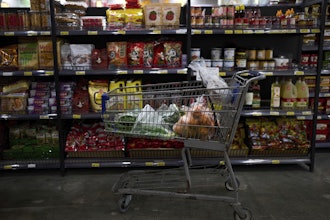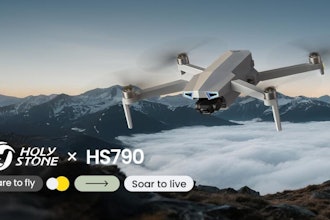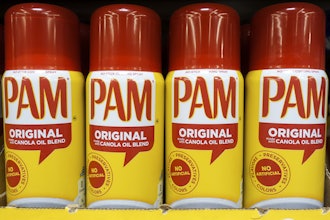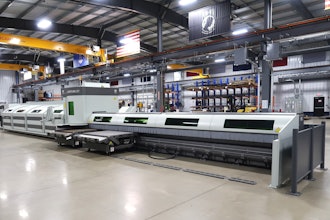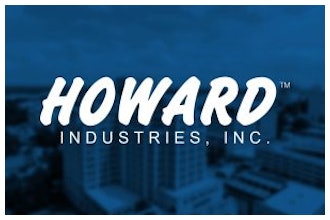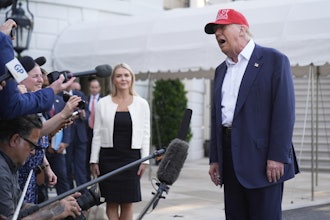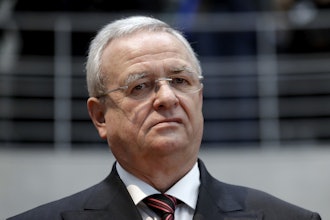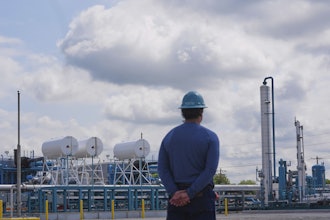MARIA-00
Clinton Foundation in the Future; Candidates Working to Raise Money; Trump
Prepares for Major Immigration Speech; Mylan To Offer Generic Version of
EpiPen; NASA's Juno Successfully Soars Closest to Jupiter - Part 4>
Stuart Varney >
>
Donald Trump; Hillary Clinton; E-mails; Clinton Foundation; David Plouffe;
Weather; Gulf Coast; Hurricane Gaston; Britney Spears; NASA; Juno; JetBlue;
Cuba; Pharmaceuticals; Health and Medicine; Sports; Race Relations >
COLWIN: That's what the argument is. There's a search and seizure - we've got Fourth Amendment protections here. If they're able to do this type of search and seizure, and violate our federal laws, where will it stop? But, frankly, the overwhelming sentiment, I mean, we hear from the ACLU and some of these residents, overwhelming sentiment is we are under siege here. There is so much crime happening, we need this level of protection.
BARTIROMO: It sounds like you could argue both sides -
COLWIN: Exactly.
BARTIROMO: -- but you are leaning toward, look, leave it alone. The crime is the bigger problem. Deal with it.
COLWIN: Exactly.
KELLY: But the way you deal with it is criminal justice reform, and I think that's what you do. I mean, I think that's the way to address it, as Orwellian drones surveying our every move.
BARTIROMO: It's true.
COLWIN: It's true.
BARTIROMO: Mercedes, good stuff; thanks so much.
COLWIN: No, thank you.
BARTIROMO: Appreciate your time this morning. The Stars and Stripes coming back to some fire trucks as one New York town faced backlash for calling the American flag a liability; the details next.
Tables at the most exclusive restaurants becoming easier due to one app. We will talk to the CEO of that app that's changing fine dining; back in a minute.
(COMMERCIAL BREAK)
BARTIROMO: Welcome back. The Food and Drug Administration says all blood donations should be tested for the Zika virus. Nicole Petallides now with the story and headlights. Nic?
PETALLIDES: Good morning again, Maria. (HEADLINES) Well, U.S. flags will be allowed to fly once again on firetrucks in in one New York town. Fire commissioners in a fire district in Poughkeepsie had ordered large flags to move from three fire engines earlier this month, over concerns about possible violations and risks to firefighters and motorists; but there was a public outcry and small American flags are now back on those trucks. Maria?
BARTIROMO: All right; thank you so much. You know, when we spoke with the head of the union for the fire truck he was so emotional about it, it's really nice to see the community coming together. We were all questioning it, when he joined us. Why?
KELLY: Yes, I remember that.
BARTIROMO: Why are you being forced to take the American flag off the firetrucks?
KELLY: Yes, and it was like it was one small anonymous complaint from somebody and then the entire unit had to take down all of their flags. It was a pretty interesting situation when he was talking about it.
HILL: Talk about tone-deaf, calling the American flag a "liability"?
BARTIROMO: It's the same, you know, issue that we've been talking about with Colin, I mean, the 49er's quarterback. Why is he out saying I'm not going to stand and pledge the allegiance to the American flag? I mean, it's this lack of patriotism.
HILL: I think it's en vogue now. I think it's actually popular now to kind of rebel against symbols of American patriotism and I think it's really sad. We said these people used to be heroes.
KELLY: I mean, here you have with the firefighters, as well as the policemen, that are putting their lives on the line every day to protect the citizens of this country, and they have such a pride doing it.
BARTIROMO: Right.
KELLY: So displaying the flag is a badge of honor for them. So to take that away is really disturbing, and it is unfortunate but if people don't like it they can go anywhere else they want. This is a free country. They can leave.
BARTIROMO: Yes; bye-bye.
KELLY: They can go to another country, which will protect their rights.
BARTIROMO: All right; we'll talk more about that. Sweet taste of success of Velocity, the restaurant startup that just raised millions. We're going to talk about that next. Then it is countdown to the election. Next hour we breakdown this neck and neck race; stay with us. Back in a moment.
(COMMERCIAL BREAK)
BARTIROMO: Jump the line and dine fine. The startup app Velocity announcing a landmark $22.5 million raised in Series B funding. It is one of the largest ever financial backings for a technology startup in the restaurant industry. Joining me right now are the Co-Founders and the Co- Ceos' of Velocity, Zia Yusuf and Alex MacDonald. Gentlemen, good to see you. Thanks so much for joining us.
ZIA YUSUF, CO-FOUNDER AND CO-CEO, VELOCITY: Thanks for having us.
ALEX MACDONALD, CO-FOUNDER AND CO-CEO, VELOCITY: Thanks.
BARTIROMO: Basically, this is a huge raise that you just did; congratulations. This is a big deal.
YUSUF: Thank you very much. Very much appreciate it.
BARTIROMO: What are you going to use the money for?
YUSUF: So we think this is an enormous opportunity, the global restaurant industry. It's a $3.5 trillion market. We'll be using this capital to really build our brand. We're going to move into 29 cities over the next three years, across the United States, Europe, the Middle East and Asia. So it's really going to be about continuing to build world leading features and continuing to build the brand and market the product.
BARTIROMO: How does it work? Tell us, Alex, how the app works.
MACDONALD: So Velocity is the leading discovery and instant booking platform for world class dining experiences in London, New York L.A., San Francisco and Miami. We focus on connecting diners with the best dining experiences in each city. So we create a list of the best restaurants, with teams on the ground in each of the cities, and allow people to get instant access to great reservations and great tables in those restaurants.
BARTIROMO: There are some restaurants that want to be exclusive and so they limit who they let in. So how are you going to get those people the access, Zia?
YUSUF: So one of the things that we've really found most heartening about this journey so far is that a lot of those restaurants, I mean, we work with over 1100 restaurants around the world, and over 90 Michelin stars. We also work with restaurants, like Ippudo, in New York, for example, who have historically never done reservations at all, who, now, you can actually get a reservation at Ippudo through our app, and the reason why is there's a great sense of community around what we're doing and we put these restaurants on an international marketplace, in front of that truly global, 21st Century diner. That's has really been the message that has resonated it with these restaurants.
BARTIROMO: I think that's what resonates with me, too; that it's global. That I could go on the and know right away the best restaurants in, whatever; Italy or New York, you know, all around the world. How to do that? How do you curate all of these restaurants from all across the globe?
YUSUF: Well, we have teams, as Alex said, in every city, and, actually, I think there's a really important point. When you look at the world we live in today, as opposed to the world we lived in ten years ago, and the brands and the products have really come to change the way we interact with the world, they are truly global. You think of Uber. It's there for you in almost any city you might think of. If you're looking for accommodations, you have Airbnb.
Today you have Velocity in seven great cities around the world. We're coming to 29 more cities over the next three years, and it really is - there's no substitute for having those boots on the ground, for having those teams of insiders curating those experiences and then putting them on the platform for customers to be able to book.
BARTIROMO: You founded the company in 2014. Then your account grew over eight hundred percent in just the last twelve months. Just looking at the amount of money that you been able to raise, this tells us that this is a great success and a lot of people have confidence in it; but you've also got names out there already that are doing something like this: OpenTable. Is this what you're doing? You want to take the market share from OpenTable? Is that the plan?
MACDONALD: I think we are focused on solving a different problem than OpenTable. A lot of those existing discovery of reservations platforms are focused on quantity rather than quality, and you'll often find after you go through a very lengthy process of sifting through thousands of restaurants to find the one you like, often then don't have the right table. They don't have the right time. They have the 6:00 p.m. or the 11:00 p.m. but it's difficult to get access to prime time reservations on those other platforms, which is where we think we specialize.
BARTIROMO: And one of the unique features is that you can pay for the meal; right? How does that improve the dining experience? You pay for with the mean with the actual app, that is very convenient.
MACDONALD: Absolutely; we think time as probably the most important asset in people's lives at the moment, and on average you'll waste a month of your life waiting for the bill in restaurants. We solve that problem. You can instantly pay from the palm of your hand and just get up and leave whenever you like.
BARTIROMO: I like that. That's really good. So what's the market here, Zia? Who are you trying to reach?
YUSUF: We're really looking to reach anybody who enjoys dining in great restaurants, and that is, obviously, an enormous market. Experiences are the thing. Every great brand in the world can see that we, as Alex said, one of the great, actually, maladies, I think, of this 21st Century we live in is we are so time poor and therefore it's really about making sure that we enable our customers and empower them to get the most out of their time and we deliver on that in so many ways, not just about the curation element. The instant booking, the taking care of the check as well.
BARTIROMO: Yes.
YUSUF: It's really about democratizing the things that were previously the reserve of the kind of elite. So really it's anyone who lives in, or is in, any of the cities we operate in who wants to dine at great restaurant should absolutely go and download Velocity.
BARTIROMO: I get it, the convenience of it for the user but how do you monetize this? How are you guys going to make money on this?
YUSUF: So we make money because our restaurant partners see a great deal of value in the diners that we deliver on a consistent basis, and also the kind of diner that we put these restaurants in front of. We, for example, are live in the Hamptons. We have customers from London who are arriving in the Hamptons for the first time and we are putting these amazing restaurants in front of those diners.
So our restaurant partners pay us for delivering them customers. We also provide a multitude of software services which help streamline the restaurateurs' operations as well.
BARTIROMO: So basically you've got that familiarity with the user because they can go anywhere in the world and they know that they're trusting this app to lead them to the restaurant they want to be in.
YUSUF: That's absolutely right.
BARTIROMO: That's terrific. So in terms of the broad market right now, what kind of reception have you been seeing?
MACDONALD: We've had a great reception. Obviously London was the first city that we launched in. We quickly brought the product over here, to the U.S., last year. Launch it initially in New York and have since taken that into L.A., San Francisco and Miami, and are now looking to expand into further cities over here. So one of the main uses of proceeds from this round will be focusing on consolidating the U.S. market and continuing to build up consumer presence out here.
BARTIROMO: That is fantastic. Gentlemen, congratulations. Great stuff.
YUSUF: Thank you.
MACDONALD: Thank you.
BARTIROMO: Really good story. Zia Yusuf and Alex MacDonald joining us; check it out. Velocity app. We'll see you soon, Gentlemen.
Next hour, the race is on; the latest number on the primaries, with just 70 days before the presidential election. We're back in a moment.
(COMMERCIAL BREAK)
BARTIROMO: Welcome back; good Monday morning, everybody. I am Maria Bartiromo. It is Monday, August 29th. Your top stories right now, 8:00 a.m. on the East Coast: (HEADLINES) (MARKET HEADLINES)
END
(Copy: Content and Programming Copyright 2016 Fox News Network, LLC. ALL RIGHTS RESERVED. Copyright 2016 CQ-Roll Call, Inc. All materials herein are protected by United States copyright law and may not be reproduced, distributed, transmitted, displayed, published or broadcast without the prior written permission of CQ-Roll Call. You may not alter or remove any trademark, copyright or other notice from copies of the content.)
(Show: MORNINGS WITH MARIA) (Date: August 29, 2016) (Time: 06:00:00) (Tran: 082901cb.231) (Type: Show) (Head: Donald Trump to Spend Upwards Of $10 Million on Advertising In Key Battleground States; Reports of an Active Shooter Overnight in LAX Turned Out to be False Alarm; 2016 on Track To Be the Worst Year for IPOs Since Financial Crisis; Mylan to Release Generic Version of the EpiPen; ACA Limiting Coverage; Fewer Options, More Expense; The 2016 MTV Video Music Awards; Kaepernick Outrage ) (Sect: News; Domestic)
(Byline: Maria Bartiromo; Nicole Petallides, Jared Max )
(Guest: Betsy McCaughey, Kevin Kelly; Harlan Hill; Kelly Riddell)
(Spec: Advertising; Automotive Industry; Banking; Business; Congress; Consumers; Economy; Elections; Families; Government; Pharmaceuticals; Policies; Politics; Polls; Safety; Science; Stock Market; Television and Radio; Government; Health Insurance; Awards; VMA; Sports )
MARIA BARTIROMO, FBN ANCHOR: (HEADLINES) (MARKET HEADLINES) All those stories coming up this morning.
Joining me to talk about it, Recon Capital CIO, Kevin Kelly; Democratic Strategist Harlan Hill. Gentlemen, good to see you.
KEVIN KELLY, CIO, RECON CAPITAL PARTNERS: Good to see you. We got our Queen Bey back!
HARLAN HILL, DEMOCRATIC STRATEGIST: That's right.
[Laughter]
KELLY: That's perfect.
BARTIROMO: I like that. I like that. Thank you so much. Look, this is it; final week ahead of what's going to be an incredible election season. Once we get back here next week, it's all system. This is a big week for economic data.
KELLY: It's huge and especially Friday actually, --
BARTIROMO: Yes.
KELLY: -- we're getting the jobs number. It may reaffirm what Janet Yellen is thinking. So we'll see because everything is leading to a rate hike and you are seeing it play out in the market right now.
BARTIROMO: We've got to see if the job numbers really jive with that on Friday, the jobs numbers we're looking at that. Then, on the political side, people, right now, waiting to see how they strategize ahead of the debates, Harlan.
HILL: This is crunch time.
BARTIROMO: Yes.
HILL: And I think we've seen a new Donald Trump. Whether or not he can keep it up is another question.
BARTIROMO: Yes, it sure it. All right; we've got a lot coming up this morning; hope you'll stay with us. Former Lieutenant Governor, and Trump Campaign Economic Advisor Betsy McCaughey is with us; Former House Majority Leader Tom DeLay will join us; and, CKE Restaurant CEO, and Trump Victory Committee Member, Andy Puzder, with us. Stay with us; you don't want to miss a moment of it this morning.
We kick it off right now with our top story: Donald Trump making a huge advertising buy in key battleground states. His campaign will spend upwards of $10 million in nine states. They include Ohio, Florida, Pennsylvania, Virginia and Iowa, of course, the swing states. These are ads, he's expect to go move the needle and help close the gap he has with Hillary Clinton in the polls; but will they?
I want to bring in Kelly Riddell right now, Washington Times Reporter. Kelly, good to see you. Thank so much for being with us.
KELLY RIDDELL, REPORTER, "THE WASHINGTON TIMES," via satellite: Thank you, Maria.
BARTIROMO: What do you think; is this what he needs to offset what she's been throwing out there, which is a lot of ads, negative ads, because she's got the money to do so?
RIDDELL: Yes; I think by the end of July she had run $600 million worth of television ads to Donald Trump's $4.8 million. So he's definitely behind the eight-ball, when it comes to actually getting out there, on TV, and showing a different side of him, which is the most important thing. We don't want to let Hillary Clinton define him and his message. So to get his message out there, in these swing states, and counterbalance, kind of, what she's doing is important.
He has a lot of money and he seems to be sitting on it so a lot of us have been speculating what is he actually going to do with this money? You know, ads are number one, but he also needs to build a ground game and an infrastructure out there, so that when November come knows where his people are and he can get them out to vote. That's something we haven't seen yet.
BARTIROMO: It's a good point. Harlan, does he need to do ads knocking Hillary Clinton or does he need to do ads talking about his strength and leadership when it comes to the issues that are important, national security and the economy?
HILL: Well I think Kelly may have a take on this too, but I think what will be really interesting is does he go positive at this point and leave the negative stuff, the negative ads, the negative media to the PAC's? The PAC's are starting to put together very significant money. I would like to see them go negative while he starts to reintroduce himself as a candidate.
BARTIROMO: He should take the high road?
HILL: Yes.
KELLY: Yes, he should take the high road, and I'm interested in what Kelly has to say about this because she just mentioned the ground game. So, basically, Hillary Clinton has staff about 800 people.
RIDDELL: Yes.
KELLY: He's got 70 or so. Is that where the money that you had mentioned he's raised that he hasn't deployed yet, is that where it's going to go? Is it going to go towards the ground effort, in getting staff in those key battleground states?
RIDDELL: I mean, and that's where typically, on a traditional year with a traditional candidate, that's exactly where it would go. You would have the RNC doing their part, and they are running ground game for him, and then you would have separate ground game teams in battleground states like Florida, like Pennsylvania, like Ohio, where you're going to need the extra voter turnout to perhaps swing the election. So far we haven't seen him do this. We know that she is doing this.
In an election cycle where both candidates are so - have such high unfavorable, it's really -- you need to get these people out there. Even if they hold their nose, you have to identify them and get them out to the ballot boxes in November.
BARTIROMO: Kelly, there's a group - apparently "The Wall Street Journal" is reporting that there is a group of White Republican retirees moving to Florida, giving Donald Trump a boost in the Sunshine State. The latest Mason-Dixon Poll shows that Hillary Clinton has only a 2-point advantage there; she's at 44-percent, he's at 42-percent among registered voters. What do you think about these White GOP retirees? Is that going to be enough to help Donald Trump take Florida?
RIDDELL: Well, it will certainly move the needle and he certainly needs the needle moved any incremental bit. The NRA is also doing a lot on the ground to help get the vote out; but the Trump campaign does need to build an infrastructure there and I think they are working on it. Their latest FEC reports will be telling but so far we haven't seen much go into actual infrastructure build. A lot being spent on "Make America Great" hats, but not a lot on the ground game.
HILL: Kelly, Harlan Hill here. So one thing that I thought was so amazing about the Obamas' campaign in 2008, 2012 was they spent a lot of time on data, determining when and where to place Barack Obama because they realized the campaign's most valuable resource is their candidate and I see Donald Trump all over the place. He's doing a lot of different media appearances. Sometimes he does different events in states that I don't think that he can win.
What are you hearing about being more intelligent about resource allocation, you know, and not wasting time on events and media here in New York or New Jersey, which he's not going to win, to be honest, and spending it in Ohio, Pennsylvania, Florida, states that he can win?
RIDDELL: I think Kellyanne Conway is a greatest addition to the campaign and I think that we've seen a lot more disciplined Donald Trump's since she's been at the helm. He's also hired the Cambridge Data Analytics firm that Ted Cruz used, in terms of motivating the grassroots and identifying people. So that's a positive step there. They were also actually used in the Brexit vote, over in Europe, in terms of identifying voters who might want to vote Leave and getting them to the polls.
So he is slowly kind of getting this -- getting his ground game up and running; it's just does he have time left. I mean, we're only 70 days, or such odd days out to November, so --
BARTIROMO: Yes, and then you've got the other side of the story; right? Citizens United, they are receiving a new batch of Clinton emails during her tenure at State Department. Some of those emails reveal that the Clinton Foundation executive, Doug Band, contacted top Clinton aide Huma Abedin, seeking special treatment from donors. So, Congressman Jason Chaffetz is now calling on the FBI to act; listen to this.
(BEGIN VIDEO CLIP)
REP. JASON CHAFFETZ (R-UT): I think the public has the right to know. We certainly have been asking for these documents since 2012 and if Hillary Clinton wants to come clean, and she hasn't yet, most everything she said about this has turned out to be a lie, she should provide calendar. The Associated Press has been fighting for years, in the courts, just to get her calendar, and she has more than one calendar, but get her calendars out there she said at a press conference about this, and the FBI should provide Congress, and consequently the public, an unclassified version of the report that they had.
(END VIDEO CLIP)
BARTIROMO: So, Kelly, the calendar; why is the calendar important? We know that just last week we learned that away from heads of state and comparable positions, 50-percent of her meetings were with donors from the Clinton Foundation. That's why everyone wants to see calendars.
Why was she spending so much time with donors of the Foundation as Secretary of State? Will the FBI act on this request? What do you think?
RIDDELL: I definitely think it's going act on the request, but then you had the State Department come out over the weekend and say there's just no way we can release her calendars in time for the November election, which is so unfortunate because we will never get a complete picture of exactly who she was meeting with, who these special interest groups were with until after she either won or lost the election; and that's just unfair to the American people.
BARTIROMO: It's a good point. What a tight moment in time. Kelly, good to talk with you. Thanks so much for joining us.
RIDDELL: Thank you, Maria.
BARTIROMO: We'll see you soon. Kelly Riddell there. Chaos, meanwhile, at Los Angeles International Airport overnight. A false alarm after a shooter prompted evacuations. It was a false alarm, though, but there were shots heard; more of what caused that scare next. Then, more trouble for GM. The latest on a new recall of more than 380,000 of its SUV's and police vehicles; back in a moment.
(COMMERCIAL BREAK)
BARTIROMO: Welcome back. Well, there are reports of an active shooter overnight in LAX. That led to the evacuation of the Los Angeles International Airport; turned out to be a false alarm. Nicole Petallides with the details and rest of the headlines. Nicole, good morning to you.
NICOLE PETALLIDES, FBN CORRESPONDENT: Good morning, Maria. (HEADLINES) And, General Motors is recalling more than 383,000 cars, SUV's and police vehicles in two separate recalls. Over 367,000 2013 Equinox and GMC Terrain SUV's are recalled to fix windshield wipers that can stop working when you're driving. More than 15,000 cars and police vehicles are being recalled because the seat belts may not work correctly. GMC says 2014-2016 Chevrolet Caprice police pursuit and Chevy SS cars have driver side seatbelts tensioner cables that can wear out and break. A broken tensioner cable will leave the driver more likely to be injured during a crash. Maria, back to you.
BARTIROMO: All right, Nicole; thanks so much. You never know how the recall will affect companies. Kevin, two separate recalls for GM now. Is this going to affect confidence in the brand?
KELLY: Yes; this certainly is going to be impacting the markets for these consumer names: GM, Ford, all of them across the board. We are seeing that because we may have hit peak auto sales. You saw in most recent earnings come out from those companies, they talked about that consistently, where they are using more and more incentives. Fleet sales were really driving and consumers are buying less of these SUV's or crossover SUV's that she just mentioned, the Chevy Equinox which is that. So consumers are looking at this and it's not good because they are picking and choosing more.
BARTIROMO: And for a little bit the auto sector was one of the stronger parts of the economy. We'll get another look this week when we get the job's number out, Harlan, but it certainly, when you look at the GDP number last week, it doesn't feel like anything, broadly speaking, has become so euphoric.
HILL: I think it's going to get worse, when you look at the rise of Lyft and Uber, and GM's increasing interest in both of those platforms. Maybe we've reached peak auto, forever; you know? Are we going to see a long- term decline in the auto industry because people don't purchase cars anymore, they just do ride-sharing service?
KELLY: We are seeing subprime auto loans at peak levels before the crisis, and that's a big overhang because the consumer is actually taking on a lot more debt, so that's going to be impacting not only the car companies but also other consumer brand companies. We saw that play out in earnings most recently when retails came out over the last couple of weeks and we were talking about the GDP. We've had the worst economic recovery since the crisis. This business cycle is long in the tooth. So there's a lot of headwinds coming against the automotive sector right now.
BARTIROMO: We've got a big week, consumer confidence, factory orders, the job's number, housing stats; meanwhile, it's going to be a pretty good market for IPO's right after Labor Day.
Top story in "The Journal" this morning: a number of companies expected to go public in the next couple of weeks, right after Labor Day, but "The Journal" is saying the momentum could be short lived; we'll tell you about it. Then, Beyonc, takes the spotlight at the MTV Video Music Awards last night. It's not just her "Lemonade" performance that was the talk of the night. We will tell you about it; back in a moment










